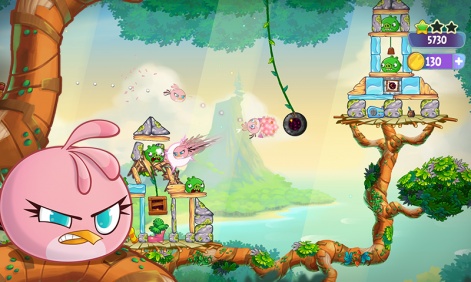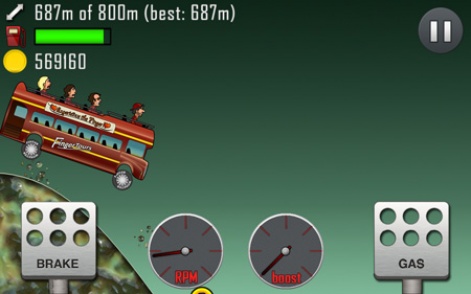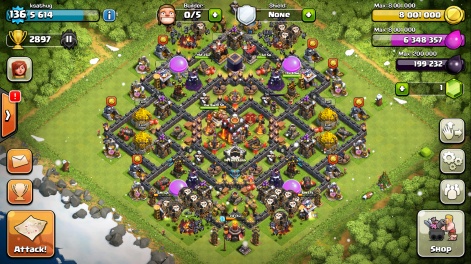Torulf Jernström is CEO of Finnish developer Tribeflame.
His blog is Pocket Philosopher and you can read all his weekly PocketGamer.biz columns here.
Back in the day, when we started planning our Benji Bananas game (some 4 years ago now), we analysed some of the top performing mobile games.
Something many of them had in common was a really slick user interface.
We simplified it down to "one touch or one slide".
Think about what you do when playing Angry Birds. It's really just sliding your finger once over the screen to do one move. The more advanced birds require you to slide once and tap once.
It was the same thing with other games of the era: one slide to Cut the Rope or dig the channels in Where's My Water; one tap to make the Tiny Wings bird dive; or the Jetpack Joyride guy fly.

We took this one touch to heart when doing the design of Benji. Any idea that required something more complicated was immediately thrown out.
Longterm retention
Games have become more complicated since then - likely because people are now more familiar with touchscreens, and with games on them.
The players are not overwhelmed as easily anymore, which gives us a bit more freedom to work with, but not much.
Once you have settled on the core user interface - what you do to make one 'move' in the game - you need a really, really good reason to introduce something that requires the player to interact in another way.
The question then is: how do we build a game that will last at least six months while always sticking to this one simple gesture for the UI?
Mobile games have 2 requirements that are in conflict with each other: simplicity to get players, and depth to keep them.
Mobile games have two hard requirements that are in conflict with each other: simplicity to get players, and depth to keep them. It takes a really skilled team to bridge this conflict.
Another similar requirement is to make the game last for 6 months without needing artists, writers and programmers to manually create content at light speed.
The question is: can we stretch this simple core game into a full mobile game with great long-term retention?
Multiple the options
One great way is to build features into the game that can be combined with each other.
You only build m + n + o features, while the player gets to play m * n * o combinations.
Let's take Hill Climb Racing as an example. It's a good example because it's so simple, there's not a huge amount of stuff to look through.
At the start, they had a few cars, and a few levels in which to drive the cars (by now they have some 20 each).
If I have unlocked 5 cars and 5 levels, there are 5*5= 25 different versions of the game that I can play.
Unlocking a sixth car will add another 5 combinations: I will want to try out the new car I just got in all the 5 levels that I have unlocked.

By the time I have tried it in all of them, I have earned enough soft currency to upgrade the engine a bit.
Now, of course, I want to try out how well that newly upgraded car behaves in all 5 levels, after which I have enough money for new tires... You can see how it goes.
After a while I think this new car would be great in that new level. I unlock the level, and want to try out all my 6 cars in it. 36 games later, I'm this close to earning yet another upgrade or unlock.
The more you can make your features interact in such a way, the more efficiently you will be able to build a long lasting and interesting game without having a huge team working on it.
Playing together
Another big feature is to make the game player vs. player (PvP).
Most forms of PvP can be seen as variants of user generated content. When I'm building my Clash of Clans village, I'm really creating a puzzle for someone with an army to solve.

Even if I'm just playing chess against someone, I'm offering them the same challenge as a level designed by the game company otherwise would. Multiplayer games have been a trend recently, and is likely to continue for some time to come.
Multiplayer is also great for triggering competitiveness among your players, and thus it is great for retention.
The building dilemma
One great way to get players emotionally attached to your game is to let them build permanent things in it. That's why different sorts of town building games are so popular.
At times it feels like the town building aspects were just glued on to something else, but it still seems to work. For instance, the Facebook game Gardens of Time gave me that feeling.
Building permanent stuff and upgrading them leads me to one particular mechanic that I must confess I did not get for quite some time.
Multiple builders will waste the content the developer made for the game by letting players do several things at once.
Clash of Clans had the concept of builders. You could get several of them, and use them to upgrade several things in parallel. I loved it, and spent my hard currency mainly on them.
Later games have, however, gotten rid of the concept with multiple builders. They are not in Boom Beach, nor in Game of War or Plarium's Vikings. Why not?
The thing is that multiple builders will waste the content the developer made for the game by letting players do several things at once.
As a player, I am no more likely to return to the game if there are two finished buildings waiting for me, than if there is only one.
And if one is enough, offering two, three or four is a waste. Letting players get through your content at twice or three times the speed is a bad idea. Hence, new games usually have just one builder.
These are some of the best ways to make your development budget stretch out to hundreds of hours of gameplay.
Next week, I'll dive into the importance of progress, and how to create that feeling in players and after that it's going to be about why match-3 is such a great core for a mobile free-to-play game.






















